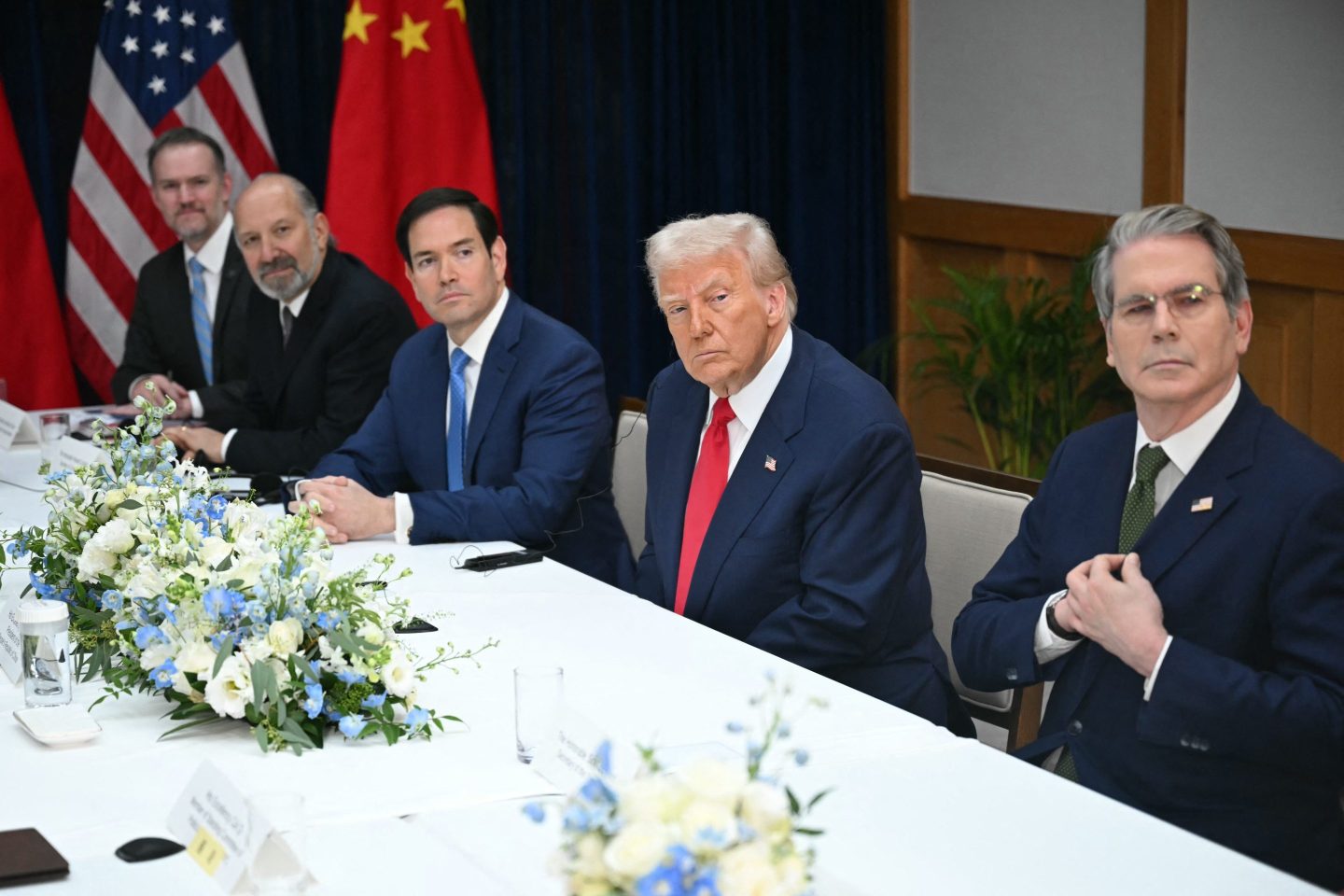Treasury Secretary Scott Bessent made his case for President Donald Trump’s global tariffs just days before the Supreme Court takes up a case challenging the White House’s use of emergency powers.
Lower courts have already ruled that Trump can’t use the International Emergency Economic Powers Act (IEEPA) to impose his so-called reciprocal tariffs and duties tied to the fentanyl trade.
But in an interview on Fox News Sunday, Bessent said he’s optimistic that the Supreme Court will decide in the administration’s favor and pointed to China’s strict rare earths export curbs that threatened a wide range of industries and critical technologies.
“The president was able to push back using his IEEPA powers,” Bessent said. “If that’s not use of an emergency power at an emergency time, I don’t know what it is.”
After Beijing announced the rare earths limits last month, Trump threatened to hit China with an additional 100% tariff that would have hiked the overall rate above 150%.
Negotiations ensued, culminating in a meeting between Trump and Chinese President Xi Jinping in South Korea on Thursday. Among the terms of a ceasefire, the U.S. Agreed to set aside the 100% tariff, while China eased exports for rare earths.
In addition to the rare earths dispute, Bessent also said the China tariffs have helped address the fentanyl crisis.
“I think just those two alone have shown us that the president has used it responsibly,” he added, while saying the trade deficit is another emergency that merits the use of tariffs under the IEEPA.
But critics have also highlighted Trump’s recent announcement that he will add a 10% levy on Canada over an anti-tariff TV ad Ontario’s government ran as evidence he is trying to use emergency powers capriciously.
The Supreme Court will hear arguments on the tariff case this Wednesday. While a decision may not come for months, the line of questioning from justices could provide clues on how they might rule.
Much is at stake, given that tariffs are a cornerstone of Trump’s economic agenda and foreign policy. They are generating significant revenue as well, and a ruling against Trump would mean the administration has to return the bulk of the money collected so far, though tariffs invoked under other laws wouldn’t be affected.
Emily Kilcrease, who was a deputy assistant U.S. Trade representative and earlier worked on trade issues at the National Security Council, told the Associated Press that Trump’s use of tariffs is unprecedented but acknowledged there is a “decent chance” the Supreme Court could side with him because the IEEPA gives the president “broad, flexible emergency powers.”
Meanwhile, trade and legal experts recently surveyed by JPMorgan put the odds that the Supreme Court will rule against the administration at 70% to 80%.
Even if the high court goes against Trump’s tariffs, that won’t put an end to his trade war as numerous other legal avenues are available to levy duties.
In fact, the administration has been rolling out other so-called sectoral tariffs in recent weeks, including on lumber and furniture.
But the alternate tariff routes don’t provide the same speed, scale, or flexibility the IEEPA does and would not fully recover the revenue lost, JPMorgan said in a note.
“The potential loss of IEEPA tariffs does not end the tariff story, but fragments it,” it added. “With more than 80% of announced tariffs relying on IEEPA, the administration would be forced to turn to narrower, more contested measures.”












